Life after Liverpool: How one city changed Eurovision forever
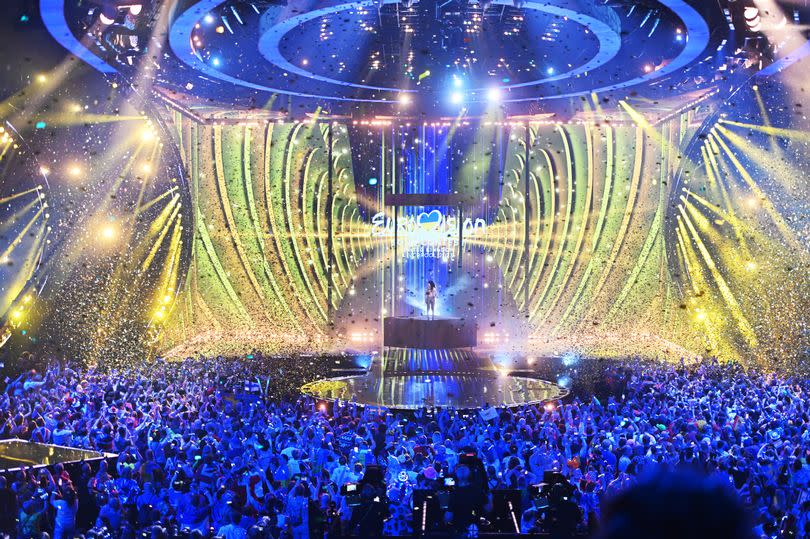
It's difficult to believe that glorious Eurovision fortnight was already a year ago. One city changing the trajectory of the biggest event in the world may seem like a fever dream but Liverpool did it - and it may never be replicated again.
The Eurovision Song Contest was Ukraine's to hold after the Kalush Orchestra secured victory in Turin in 2022. Their track, Stefania, was a melodic hip-hop/folk mashup sung entirely in their native tongue, bagging an impressive 631 points, almost 200 more than the nearest competitor.
Celebrations were short-lived as due to the ongoing Russian invasion, European Broadcasting Union (EBU) members and the Ukrainian delegation team decided it was unsafe to hold the contest on home turf. Although a massive blow for the what-should-have-been host nation, it resulted in one of the most successful contests in history.
READ MORE: Eurovision Song Contest forever changed because of Liverpool
READ MORE: 65 incredible photos of the Eurovision Song Contest 2023 in Liverpool this week
The EBU auctioned the contest off to the rest of Europe, resulting in a bidding war between big hitters like Spain and Germany, but it was the BBC who would swoop in to produce the show. Hosting on behalf of another was no foreign concept to the BBC after they held the show in Edinburgh in 1972 after 1971 winners Monaco decided not to host and again in Brighton in 1974 after 1973 victors Luxembourg declined the chance to host.
Liverpool would be named host city in October 2022 after a closely-fought race against fellow contenders, including Glasgow, Leeds, Manchester, Birmingham, Newcastle and Sheffield. The result was far from a lucky draw as Liverpool put together one of the most impressive packages the EBU would ever see, which even the UK's Eurovision Minister, Stuart Andrew, would brand as "ambitious."
Ms McColgan, the Director of Liverpool Council's hugely successful culture team, has a famous track record of putting on major events including the Giants Spectacular and Liverpool's Champions League trophy parade in 2019. Together with the culture team, they produced a region-wide package including EuroStreet, EuroGrant, EuroFest and EuroLearn which included funding, school education programmes, parades, performances and an undeniable Eurovision stamp across Liverpool.
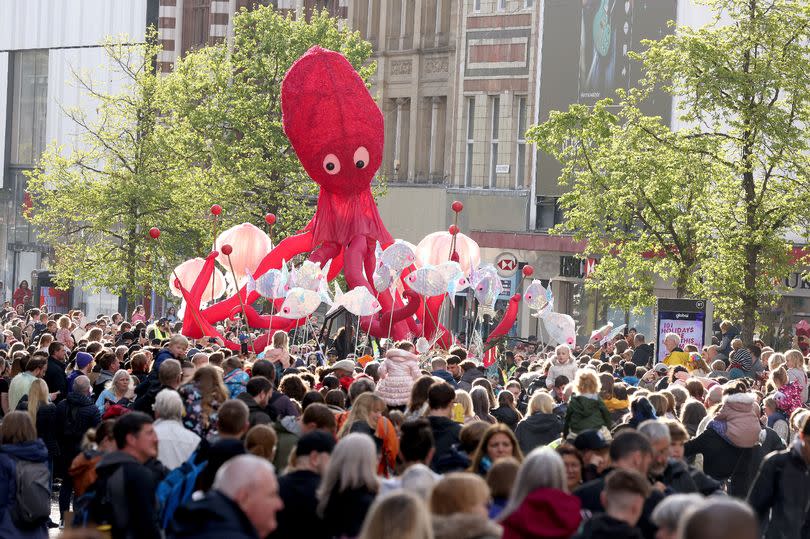
The effort rippled across the world with even Eurovision's directing supervisor Martin Österdahl blown away by the dedication to the contest and Ukraine. He told the ECHO: "I have to say, since the first moment I set foot in this city, I thought this was going to be a phenomenal Eurovision Song Contest host city. It's great to see it become that. Everyone from the city administration and local communities and small businesses embracing the contest fully was wonderful to see."
After the dust settled from almost 500,000 visitors, the results were a win for Liverpool's success. A series of reports concluded that £55m was driven to the Liverpool City Region’s economy, 80% of residents said how important it was for Liverpool and a further 93% said they were pleased with how the city delivered the event. More than 70% felt that the city’s leading role promoted positive feelings across all of the participating nations.
Director of Culture, Claire McColgan CBE, told the ECHO: “When we were bidding to be the Eurovision host city on behalf of Ukraine, legacy was key – this event was never going to be just a flash in the pan for us and we wanted to make the most of the Eurovision afterglow.
“The impact of staging the event surpassed our expectations - £55million economic impact and nearly half a million visitors were just two of the headlines – but what it really did, was show the world that if you invest in culture properly, magic really can happen.
“That unified, city takeover we experienced during Eurovision has shaped our brand new Liverpool Loves campaign which encourages organisations and businesses to get behind major events – providing an unforgettable experience for visitors and making them want to return time and time again.
“And of course, we want to position ourselves as the UK’s capital of Eurovision from here on in – after all, why wouldn’t you want to celebrate this bonkers and brilliant singing competition in the most successful host city ever? As for whether would we ever host the competition again? In a heartbeat.”
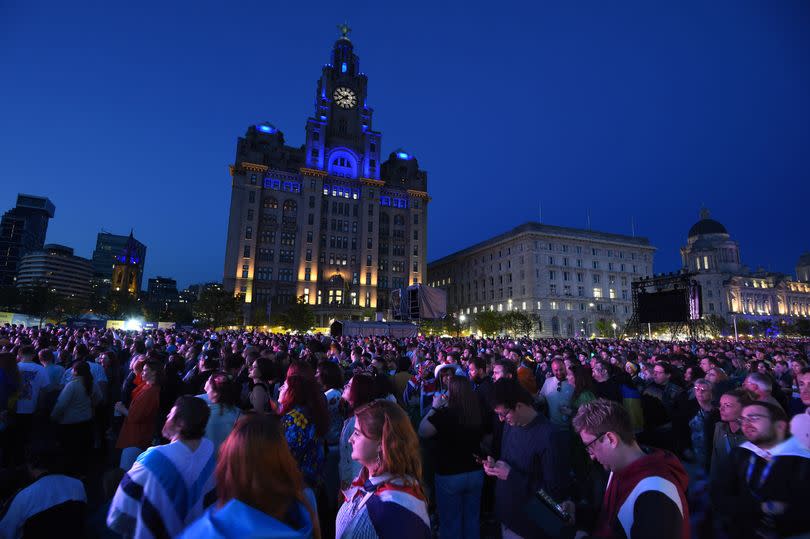
It's easy to take the word of those at the centre of the action but Alasdair Rendall, the former president of Eurovision fan club OGAE UK who led the organisation of EuroClub, was in full agreement. The EuroClub is the epicentre of fans partying outside of the Eurovision Village, hosting thousands across the contest period in a contained hub of music, events and performances.
EurClub was held in Liverpool's Camp and Furnace but its energy is still palpable as he prepares for Malmo. He told the ECHO: "We're still very much riding on the crest of a Eurovision wave. Almost a year on, people are still talking about the vibe, atmosphere and energy of Liverpool.
It's hard to believe that only a few short years ago, much of the media in the UK treated Eurovision as a joke, and the way in which the debate around Eurovision has turned around is incredible. If you need more proof, just look at the fact that the UK has chosen Olly Alexander, one of the country's most credible music stars of the last few years to be our representative.
"Euroclub in Liverpool proved that the fan experience is almost as important for the host city as the contest itself, and Liverpool went above and beyond in that respect. Sweden is already building a great fan experience in Malmo and it's looking like another great contest but let's be honest, it's going to be hard to beat Liverpool 2023."
At the heart of Eurovision are the fans and arguably the most difficult to impress. Coming off the back of a questionable show in Turin all eyes were on Liverpool to see if it could pick up the pace and how Ukraine would be represented.
The conclusion it is one of the greatest shows in history isn't just represented by the statistics but by the consensus of those who experienced the foresight in person. A great show backed by two great back-to-back representatives, Sam Ryder and Mae Muller, has lit a fire in UK Eurofans.
Rory Gannon, 25, from Manchester, told the ECHO: "Going into Liverpool 2023, it was really strange to see so many people in the UK be filled with pride for Eurovision. As an Irish fan who moved to the UK, I was used to the bombardment of 'political' accusations and that had killed off any potential interest in the show.
"But having actually experienced the joy that Liverpool had for the Contest, I was so happy and my heart had warmed massively thanks to it. Liverpool itself was an amazing host and it was so nice to see the branding sprawling across the city - the way that the whole area got involved with Eurovision is something we'll probably not see again in a long time. I think we're at a turning point and after some mixed results, the fact that people are taking the competition seriously again is enough for us."
Pete Turton, 39, from Liverpool, echoed the sentiment, adding "Liverpool is a template for how other cities can host a Eurovision. I think in terms of the contest itself, it’s looked at in a much more positive light than when I started out as a fan.
"People seem to be more positive about the songs in recent years and the chart performances would suggest this to. When I think back to 20 years ago, there was a definite negativity, but I think some of the stereotypes (it’s rigged, neighbours vote for each other, songs are bad) are generally breaking. I think the UK needs a good run of results to stop those stereotypes re-emerging."
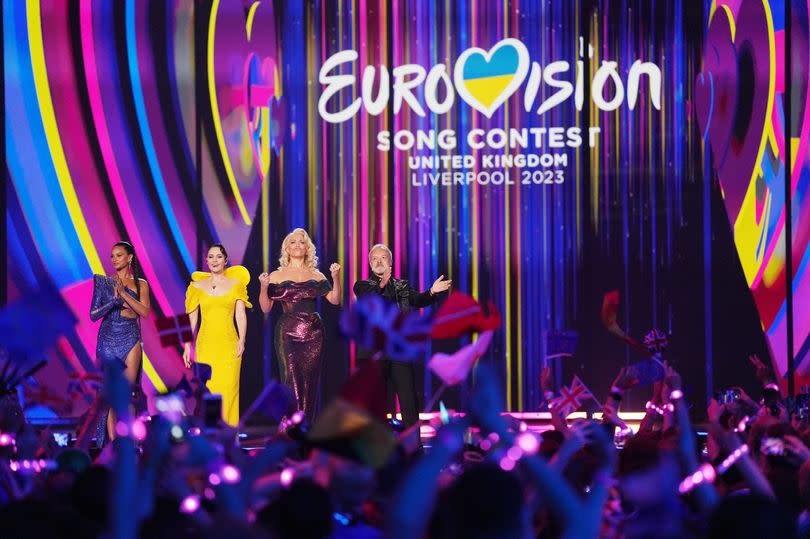
The face of the BBC's Eurovision 2023 was a showstopping lineup - Graham Norton, Hannah Waddingham, Julia Sanina and Alisha Dixon. The quartet of hosts effortlessly wrangled the contest for millions of viewers worldwide but none of it would've been capable if not for the core team at the BBC.
The executive producer of BBC Studios Andrew Cartmellis weighed in on exactly where the United Kingdom sits regarding the contest. Following the success of Liverpool, newfound adoration for our entries, and a generally positive outlook on what the future could hold, we're heading into a Eurovision renaissance.
He told the ECHO: "The UK team have just arrived in Malmö and there’s a real sense of anticipation around Olly. That is partly due to Olly being such a gifted and successful performer, but also because there is a newfound confidence surrounding the UK at Eurovision, and because the British love affair with the contest seems to have reached peak levels these last couple of years.
"But this is very much a recent thing and came about with success on the scoreboard in 2022. Before that the British media and many of the public believed the U.K. was doomed to failure at Eurovision.
"‘It’s all political voting’ and ‘everyone in Europe hates us’ were typical responses. But I never believed that. The truth was that the U.K. needed to match the efforts of other countries who were taking the contest so much more seriously than we were.

"As simple as it sounds we needed to find an impactful, contemporary song. Find a world-class performer and ensure the staging is genuinely memorable and stand out.
"And that’s what happened with Sam Ryder in 2022. Not only that but Sam was passionate about the contest and took it seriously. Europe fell in love with him and the points came in one after another. But that was only part of the story. The British music industry was also starting to take Eurovision seriously."
Andrew continued: "They were seeing the competition launch artists on an international scale. No longer were people mocking Eurovision. It had become the biggest music show in the world with world-class production values and credible songs with global appeal. Against this backdrop, the U.K. were asked to find the perfect city to host and in the end the decision was simple. Liverpool.
"The birthplace of British Pop Music and the city with probably the friendliest locals in the whole of the UK, Liverpool welcomed Eurovision and its fans with wide open arms and then some. For one week in May, the sun shined and the city had a carnival atmosphere.
"It was a huge undertaking to host Eurovision, but Liverpool and the BBC pulled the event together in record time. Having not hosted the contest since 1998, the appetite for the contest in the UK was huge.
"Tickets for all shows sold out in record time, people came out in their thousands to attend Eurovision Village, and Liverpool took its responsibility for hosting on behalf of Ukraine very seriously. As someone who was born in the North West of England I was immensely proud how Liverpool adopted the contest with such fervour and enthusiasm."
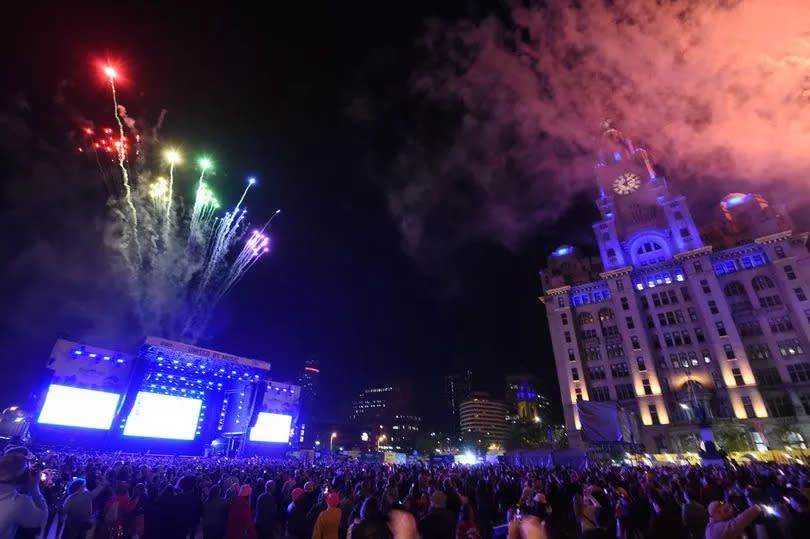
Andrew concluded: "As executive producer of the three live shows in Liverpool last year, my personal favourite moment was The Liverpool Songbook interval act in the Grand Final. This brought together some iconic Eurovision acts and some classic Liverpool anthems, culminating in the very moving finale when performers and the hosts, along with a children’s choir in Kyiv, Ukraine sang ‘You’ll Never Walk Alone’, the perfect song to show Europe’s support for Ukraine.
"So here we are a year on. As for the BBC, going forward we fully intend to build on the recent successes of Sam Ryder and Liverpool and it’s our intention that the UK becomes a powerhouse in Eurovision alongside the likes of Sweden, Italy, Ukraine and Norway.
"Success can never be guaranteed and the unpredictability of the voting is part of the show’s charm. But with a renewed effort by the BBC and producers BBC Studios, and with continued support by the UK Music industry and by BBC Radio, there’s no reason why the UK can’t win Eurovision at some point in the next few years. That is very much our goal. Who knows, maybe bring the contest back to Liverpool?"
Receive top stories on everything going on in Merseyside including events, shopping and food and drink through our newsletter by signing up here

 Yahoo News
Yahoo News 
